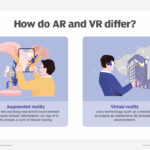New research examines who is invited to the metaverse and why it matters.
- The metaverse has the potential to increase access and belonging, as well as channel exclusion and violence.
- New research examines who is invited to the metaverse using content analysis of 526 U.S. news articles.
- People without buying power and marginalized people were rarely included in media coverage.
After Mark Zuckerberg announced that Facebook would be changing its name to “Meta” in 2021, the hype surrounding the metaverse reached a fever pitch. Enormous financial investments prompted fierce debate about the feasibility of this new virtual world. Will it revolutionize our daily lives? Will it exacerbate the toxicity that blights today’s online spaces? And most contentiously, will the metaverse even catch on? As early adopters began exploring this new virtual world, reports trickled in of racism, sexual assault, and homophobia. Despite these red flags, the vast majority of press coverage seemed to paint a rosy picture of the metaverse’s prospects. In short, the media bought into the hype.
In a recently published paper for the journal of Cyberpsychology, Behavior, and Social Networking, we took a closer look at this apparent discrepancy between user experience and news reporting. We explored how the metaverse is framed in U.S. news media coverage, and who the media targets as “ideal” metaverse users. Public awareness of the metaverse is likely significantly shaped by its coverage in the media, and the way news outlets frame it communicates to readers what it is, how it may affect them, and whether they should participate in it. Without critical intervention, scholars have warned that the metaverse, like other digital technologies, could exacerbate social inequalities, starting with who is granted access to this new virtual world.
In addition, the metaverse has the potential to support or thwart critical belonging needs. Research finds that digital spaces are foundational for peer group development and can provide people with a sense of relatedness and self-expansion. Therefore, the metaverse may be able to support social well-being, perhaps especially for isolated individuals, whether by geographic, social, health, or economic factors. The question, however, remains: Will this potential be realized?
Through systematic content analysis of 526 U.S. news articles, we found that the media frames the metaverse as a primarily corporate space to which only those with buying power are invited: investors, technology experts, and consumers. The top five groups of people invited to the metaverse according to news media coverage were: consumers (21 percent), content creators (19 percent), technology experts (16 percent), investors (16 percent), and celebrities (15 percent). Users without buying power and users from marginalized groups were rarely considered in media coverage.
In most news articles, the metaverse was framed as a money-making endeavour. The main theme of 54 percent of articles was “monetizing the metaverse.” This is a significant departure from early media coverage of the internet, which emphasized its potential for human development and belonging.
Perhaps most concerning was the media’s rose-tinted view of the metaverse. Only 11 percent of articles took a critical stance toward the metaverse (for example, “Interest In NFTs And The Metaverse Is Falling Fast”), and only 5 percent of articles focused on its many ethical and moral concerns.
In contrast to the claims of recent news articles, our empirical research indicates that U.S. news media on virtual reality doesn’t prioritize covering or engaging diverse users, potentially limiting opportunities for people to reap the benefits of metaverse participation. Below we provide recommendations for making the metaverse more inclusive.
- Tech developers should collaborate with ethicists, psychologists, survivors of online harassment and discrimination, scholars, activists, and young people to ensure that their products and messaging promote human health and well-being.
- Tech developers should prioritize accessibility, providing free opportunities for metaverse engagement that are accessible to those from a wide variety of social, economic, and geographic backgrounds. For example, companies can provide headsets for local libraries and community centers.
- Tech developers should center the needs and experiences of marginalized groups when designing and reviewing content moderation, reporting, and other safety tools.
- Media companies should review the scope of their coverage of the metaverse to ensure vulnerable and marginalized groups are being considered and should explore the ways the metaverse is (or isn’t) working to protect the safety and privacy of these groups.
Quelle:
Foto: The metaverse is coming



